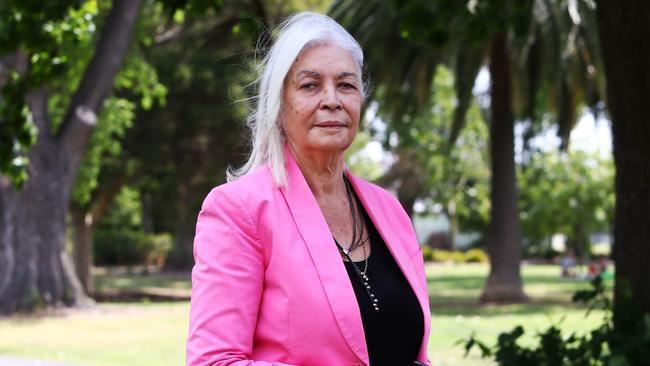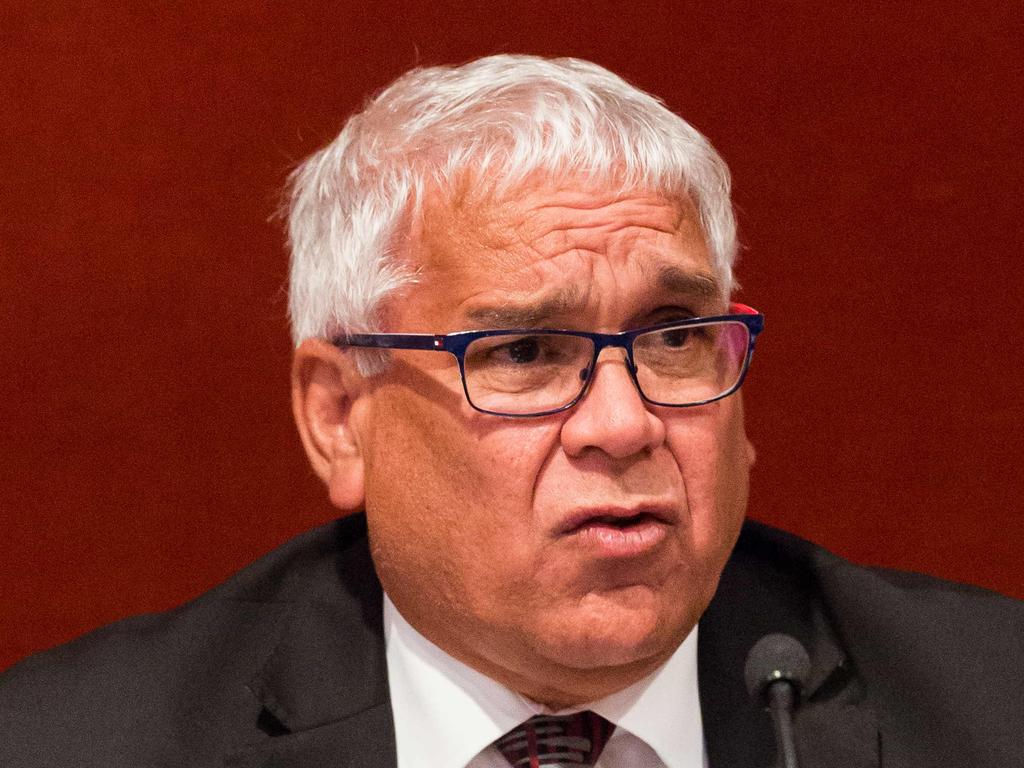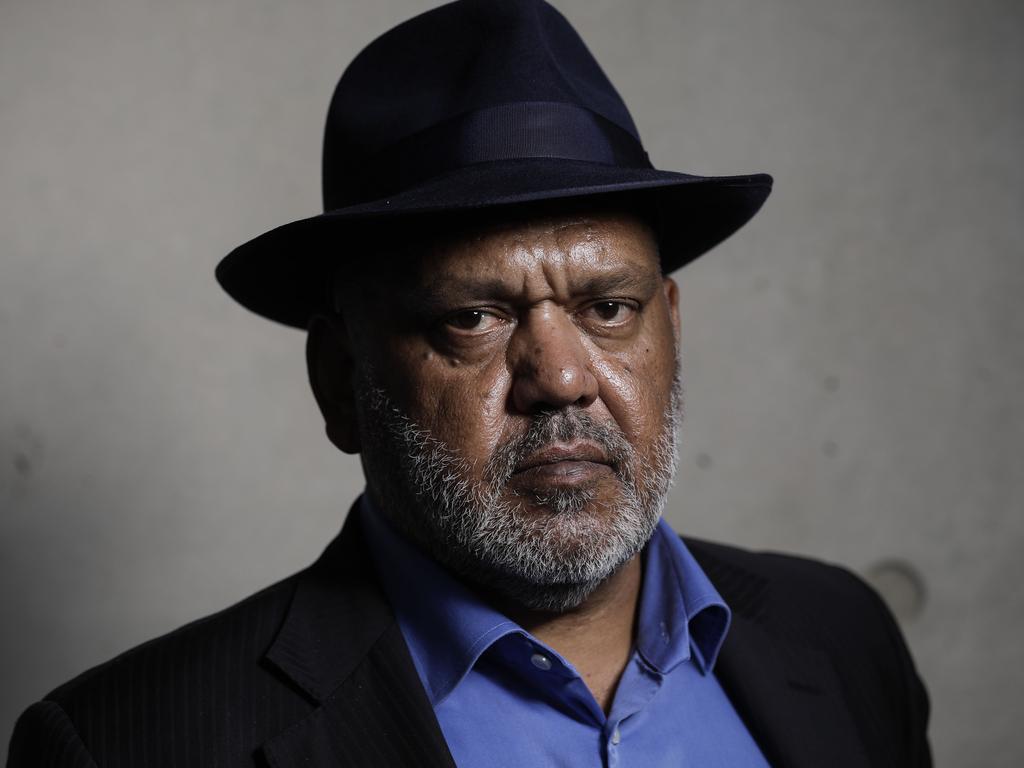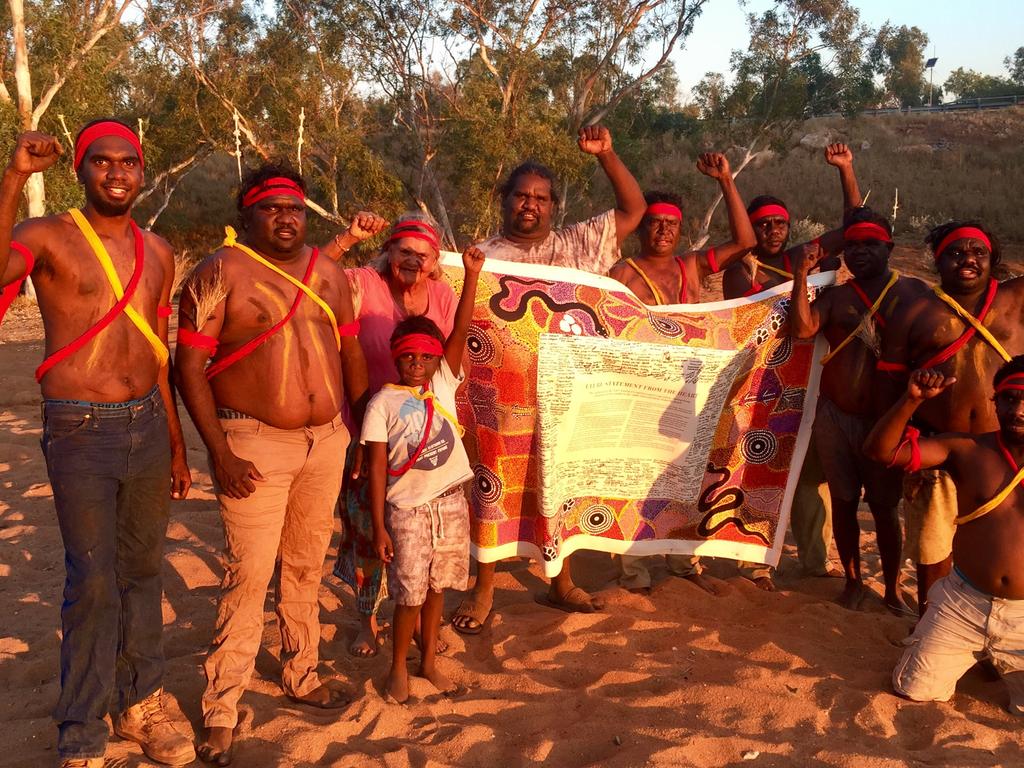Give indigenous ‘voice’ clout over cash, say elders
The two leaders overseeing the voice to government favour elected representatives to ensure millions aren’t lost to ‘leakage’.

The two indigenous leaders overseeing the design of a voice to government favour elected representatives with the power to ensure millions of dollars meant to improve the lives of Aboriginal Australians are not lost to “leakage”.
Marcia Langton and Tom Calma, who head the senior advisory group charged with developing a blueprint for an indigenous voice, are discussing a widely representative, multi-layered structure that may incorporate some of the attributes of the disbanded Aboriginal and Torres Strait Islander Commission.
The indigenous voice has been highly divisive after the government rejected a call from the Uluru Statement from the Heart that it be included in the Constitution.
The proposals being developed by professors Langton and Calma, which can be revealed by The Australian, are aimed at generating substantial support for the voice and radically reshaping how government deals with the Aboriginal community.
In her first extensive comments on the voice since her appointment, Professor Langton said indigenous people were being denied basic citizenship rights, including access to clean drinking water. “Taxpayers’ money is leaking all over the place because of inefficiencies. It shows in the outcomes,” she said.
“We have to make sure the money is being spent as close as possible to the problem. Funds are being siphoned off at every layer of government.”
She said very little of the funds reached communities.
“Most people think that Aboriginal people are getting it all; they are not,” she said.
As co-chairs of the senior advisory group appointed by Indigenous Australians Minister Ken Wyatt, Professor Langton, Professor Calma and 17 colleagues have until next October to present options for the voice.
They will work with a group focused on how to create strong representation for indigenous people at local and regional levels and another focused on representation at a national level.
Professor Langton said the states had always done less than they should and must now do their part.
“I keep asking myself how can it be so hard to get it right for 800,000 (indigenous) people, many of whom don’t need a lot or even any government assistance because they are employed full-time and they are not experiencing the kind of disadvantage that some indigenous people do,” she said. “When you look at the number of people who need policies to work for them, it’s not that many people. It’s not a big number.”
Professor Langton and Professor Calma believe the voice should not detract from — and could incorporate — existing indigenous organisations, such as native title groups or prescribed body corporates.
“Our role is not to undermine any of those mechanisms but to see how can we get them to work together,” Professor Calma said.
“The last few prime ministers have had indigenous advisory groups that they have used as one of their sources of advice. But they were an appointed group — they weren’t elected or representative, but individuals.
“Our task is to look at a group to advise the whole of government. That is a bit of a challenging task.”
Professor Langton said most indigenous people preferred elected representatives, though election methods varied across the country and sometimes included a show of hands. Professor Calma holds a similar view, saying there was increasing interest in having a fair and open process. “I think there will be resistance if the voice is just going to be government-appointed people getting on an advisory body,” Professor Calma said.
Professor Langton said she did not want to be prescriptive because others might have different ideas, but it was her belief that the voice could end the “Balkanisation” inside indigenous affairs.
The Morrison government committed $7.3m in the last budget for the design of an indigenous voice in line with the recommendations of the joint select committee chaired by Liberal MP Julian Leeser and Labor senator Pat Dodson.
Professor Langton said there were areas of indigenous affairs with too many policies and others with policy gaps. She believed effective indigenous policy could work like drought response. “You need the problem to be dealt with seamlessly from institution to institution from local to state, from state to federal ... it seems a very good example of what we are dealing with,” she said.
Professor Calma said some elements of the former multi-layered ATSIC, in which representatives were elected, worked well but others did not.
Professor Langton said there was a lot of resistance to “anything that looks or smells like ATSIC”.








To join the conversation, please log in. Don't have an account? Register
Join the conversation, you are commenting as Logout